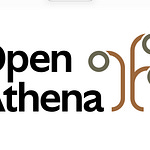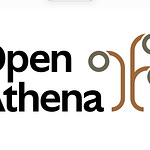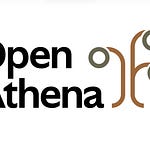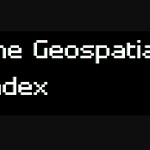Upcoming Domain Change
Due to launching Geospatial FM, I will change the domain from www.geospatial.money to www.geospatial.fm. This will occur over the next few days. Just a heads up. You will still receive emails as normal.
Clips From Latest Episode
Even Experts Struggle -Radiologists vs. AI-Generated Images
Self-Driven Learning and AI-Enabled Educational Breakthroughs. Link to article mentioned.
AI's Simulation of Thought vs. Real Human Reasoning
Why AI Empathy Feels Hollow
Nelson Roque
Nelson Roque is Assistant Professor, Human Development and Family Studies at Penn State University. He studies the brain as it develops and ages. He also lectures in cognition. In reviewing his Google Scholar you can see he has a wide remit, also covering hot topics such as smartphone addiction and the loneliness epidemic. It was a deliberate choice to kick of Geospatial FM with him. If we are to create foundation models to use artificial intelligence for solving in geospatial then we had better be sure what intelligence is. Nelson started by saying cognition is the preferred term. The word intelligence comes with connotations that are to be avoided by those in a healthcare context serving the vulnerable.
From the outset, then, it was a productive session driven by two studies he has conducted about an early version of ChatGPT and our incapacity to detect AI generated imagery. This included a live demo where I failed every single test! The episode concludes with an epilogue prompted by this from Matt White. Here he contends that modern versions of Gemini and ChatGPT leveraging chain of thought functionality do not actually involve reasoning.
The impression from Nelson is that Matt White is right and no reasoning is going on. This is a good accompaniment to Apple's blockbuster paper doing the rounds which carries the same message: "The Illusion of Thinking". It was good then to secure commentary from this research psychologist on the implications of the latest versions of these tools.
Have a listen to his reasoning in the full episode here:
Air Quality
A fascinating overlap in our interests was air quality. Nelson researches how air quality affects brain health/development. I just happen to have deployed Ushahidi in Backa Topola, northern Serbia to collect air quality data:
Above you can see the latest report, 2 days ago, showing the smell was very bad to the south of the town. It is on the road leading past the source of the smell, an animal rendering plant. Nelson was useful in how to go beyond these subjective reports, for example identifying this sensor. His latest research on air quality is Identifying air quality monitoring deserts in the United States.
In multiple respects then it was a privilege to have Nelson on.
Further reading
On the Dangers of Stochastic Parrots: Can Language Models Be Too Big? 🦜
Can LLMs make trade-offs involving stipulated pain and pleasure states?
From chalkboards to chatbots: Transforming learning in Nigeria, one prompt at a time
Interesting data collection app including location-triggered sentiment tracking is MetricWire:
Artificial Intelligence and the Future of Teaching and Learning
Nelson’s work discussed on the show












